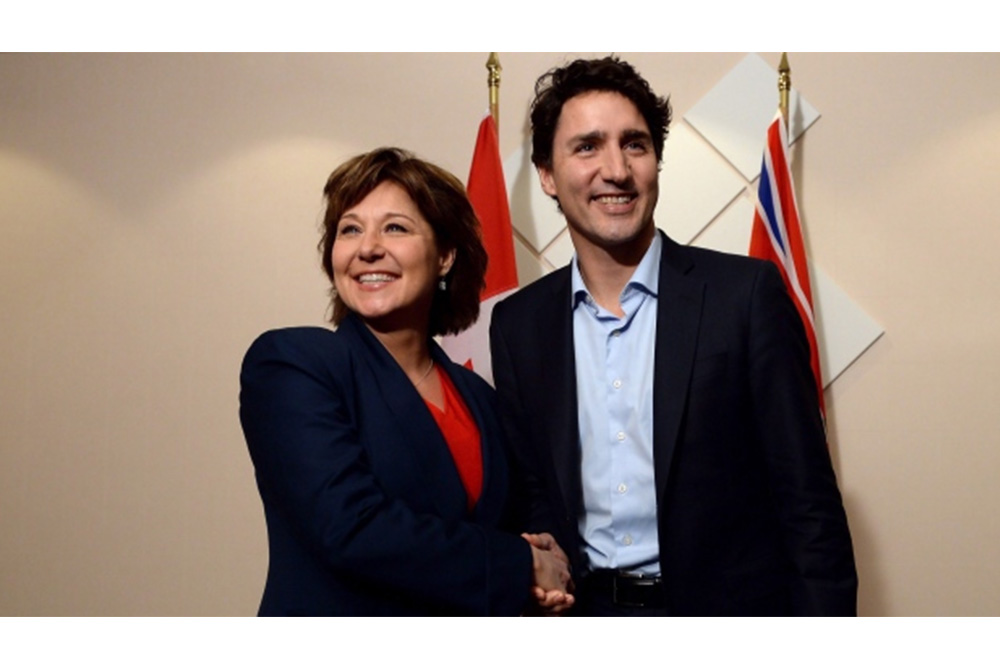If you're a Conservative in British Columbia, you'll probably find yourself voting Liberal when the province goes to the polls on May 9. If you're a Liberal, there's a decent chance you'll cast a ballot for the NDP. And if you're a New Democrat, you might be rooting against the only governing New Democrat in the country, Alberta Premier Rachel Notley.
B.C. politics are complicated.
And those complications might extend all the way to Ottawa when the results of next month's provincial election are known.
A Venn diagram would be needed to properly explain the overlap between the provincial B.C. parties and their federal counterparts. The B.C. Liberals, a centre-right coalition that includes both federal Conservatives and Liberals, is not affiliated with Justin Trudeau's Liberal Party.
The B.C. New Democrats, under John Horgan, are affiliated with their federal counterpart, as are all provincial iterations of the NDP. But the provincial NDP routinely out-performs the federal NDP in British Columbia because the provincial party is supported by a large number of voters who cast their ballots for the federal Liberals.
A recent Insights West poll laid it all out. It found that 88 per cent of British Columbians who voted for the federal New Democrats in 2015 now support the B.C. NDP, while 73 per cent of 2015 Conservative voters are supporting the B.C. Liberals.
But those who voted for the federal Liberals were split: 49 per cent support the B.C. Liberals and 34 per cent support the B.C. NDP.
Divided loyalties and priorities
The B.C. Liberals are backed by federal Conservatives both in B.C. and in Ottawa. Though there is a B.C. Conservative Party in the province, it took just 4.8 per cent of the vote in 2013 and as of Tuesday afternoon had just eight candidates running in B.C.'s 87 ridings.
The pipeline policies of Christy Clark, who has been premier since 2011, are unlikely to displease many Conservatives — the B.C. Liberal leader is in favour of building pipelines like Kinder Morgan's Trans Mountain project, which the federal Liberals approved last fall and which runs from Alberta to Burnaby, B.C.
That decision, however, has divided some federal Liberals. The party took a hit in the polls in B.C. immediately after the decision was announced and some Liberal MPs from British Columbia expressed concerns.
Liberal voters disillusioned by the pipeline approval might now be considering casting a ballot for the B.C. New Democrats, who are opposed to Trans Mountain.
But for that reason, the Liberal government in Ottawa would likely prefer Clark's re-election. Trudeau has staked his party's reputation in Western Canada on its ability to get pipelines built. An NDP victory in British Columbia could complicate that.

